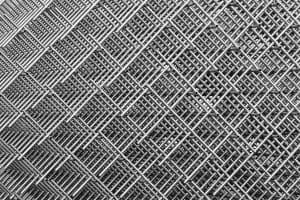Storing a Variety of Agricultural Products in Steel Structures for Extended Periods
In the world of agriculture, efficient storage is paramount. Farmers and agricultural enterprises must ensure that their hard-earned produce and commodities remain in optimal condition for extended periods. One solution that has gained prominence is using steel structures for long-term agricultural product storage. These versatile buildings offer a range of advantages that help preserve the quality and longevity of various agricultural products. This column will explore the benefits and applications of storing different agricultural products in steel agricultural buildings.

-
Grains and Cereals
Grains and cereals are staples of agriculture but are also highly susceptible to spoilage when exposed to moisture and pests. Steel structures provide a secure and controlled environment that keeps these products dry and protected. Farmers can store grains and cereals for extended periods without compromising quality with proper ventilation and temperature control. Additionally, storing grains and cereals over a longer duration enables farmers to strategically time their sales and take advantage of market fluctuations, potentially increasing their profits and market competitiveness.
-
Fresh Produce
Fruits and vegetables are another agricultural product category that greatly benefit from steel storage structures. These buildings can have refrigeration and humidity control systems, allowing farmers to store fresh produce in ideal conditions. This extends the shelf life of fruits and vegetables, reducing waste and increasing profitability.
-
Livestock Feed
Maintaining a consistent and high-quality diet for livestock is essential for their health and productivity. Steel storage structures are ideal for keeping large quantities of livestock feed, such as hay, silage, and grain. They protect these valuable resources from moisture and pests, ensuring that livestock receive nutritious feed year-round. Furthermore, the durability and resilience of steel structures make them a long-lasting investment, guaranteeing a continuous supply of quality feed for livestock, ultimately contributing to the success and sustainability of the farm.
-
Dairy Products
Dairy farming relies on the preservation of milk and dairy products. Steel structures can be customized to include dairy processing facilities and cold storage areas. This enables farmers to store milk, cheese, and other dairy products under controlled conditions, extending their shelf life and maintaining product quality.
-
Poultry and Meat
Maintaining the cold chain is crucial for poultry and meat products to prevent spoilage and bacterial growth. Steel structures with temperature-controlled storage spaces are ideal for keeping poultry and meat fresh. This is especially important for farm businesses that raise and process their poultry and meat products. Moreover, consistently providing fresh and safe poultry and meat products is crucial in building and maintaining a solid reputation in the food industry, fostering customer trust, and ensuring continued business growth.
-
Specialty Crops
Agricultural diversity often includes specialty crops like nuts, spices, and herbs. These products have unique storage requirements to maintain their flavour and aroma. Steel structures can be designed to accommodate these needs, with features such as adjustable humidity levels and controlled airflow, ensuring the longevity of specialty crops.
In conclusion, using steel agricultural buildings for long-term agricultural product storage is a game-changer for farmers and agricultural enterprises. Whether it’s grains, fresh produce, livestock feed, dairy products, poultry, meat, or specialty crops, these structures provide a versatile and customizable solution to meet the unique storage needs of different agricultural products. By preserving product quality, reducing waste, and extending shelf life, steel structures contribute significantly to the sustainability and profitability of agriculture. As the agricultural industry evolves, innovative storage solutions like steel structures will become essential for ensuring food security and economic success in farming endeavours.

